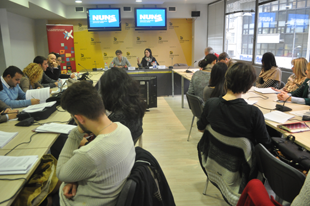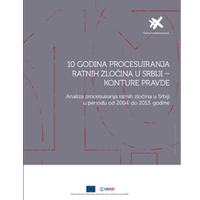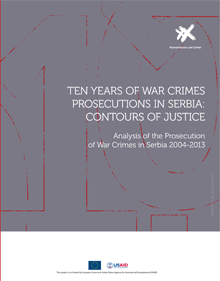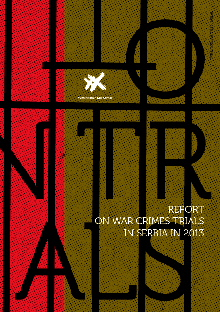Acquittal in Gradiška Case: New Instance of Omissions in Work of Prosecutor’s Office and Court

 The Higher Court in Belgrade rendered a judgment in the Gradiška Case on October 13th, 2016, acquitting the accused Goran Šinik of charges that he had committed an act of war crime against a civilian population. The Humanitarian Law Center (HLC) emphasizes that this judgement is the outcome of an unfounded indictment filed by the Office of the War Crimes Prosecutor (OWCP), as well as of inadequate control exercised by the Trial Chamber of the Higher Court in Belgrade in the phase of judgment confirmation; and that this case represents a paradigmatic example of how an image of productivity of the war crimes judiciary is being fabricated, by raising indictments which are doomed to failure.
The Higher Court in Belgrade rendered a judgment in the Gradiška Case on October 13th, 2016, acquitting the accused Goran Šinik of charges that he had committed an act of war crime against a civilian population. The Humanitarian Law Center (HLC) emphasizes that this judgement is the outcome of an unfounded indictment filed by the Office of the War Crimes Prosecutor (OWCP), as well as of inadequate control exercised by the Trial Chamber of the Higher Court in Belgrade in the phase of judgment confirmation; and that this case represents a paradigmatic example of how an image of productivity of the war crimes judiciary is being fabricated, by raising indictments which are doomed to failure.










 The Report on War Crimes Trials in 2013 is based on the monitoring and analysis of war crimes trials before the Higher Court in Belgrade, Court of Appeal in Belgrade and the courts of general jurisdiction in Nis, Pozarevac and Prokuplje.
The Report on War Crimes Trials in 2013 is based on the monitoring and analysis of war crimes trials before the Higher Court in Belgrade, Court of Appeal in Belgrade and the courts of general jurisdiction in Nis, Pozarevac and Prokuplje.  After a retrial, the Higher Court in Belgrade again convicted Marko Kashnjeti on June 21st, 2013 to two years of imprisonment for a War Crime against a Civilian Population committed on June 14th, 1999 in Prizren. The Humanitarian Law Center (HLC) holds that the evidence presented in the trial does not point to the conclusion that Mark Kasnjeti is responsible for the crime he was charged with and that the judgment is marked by errors made by the court in the evaluation of evidence.
After a retrial, the Higher Court in Belgrade again convicted Marko Kashnjeti on June 21st, 2013 to two years of imprisonment for a War Crime against a Civilian Population committed on June 14th, 1999 in Prizren. The Humanitarian Law Center (HLC) holds that the evidence presented in the trial does not point to the conclusion that Mark Kasnjeti is responsible for the crime he was charged with and that the judgment is marked by errors made by the court in the evaluation of evidence.